
CNN Reportedly Poised to Pick Mark Thompson as Next CEO
Mark Thompson, the former chief executive officer of The New York Times Co., is set to take up
2023-08-30 10:51
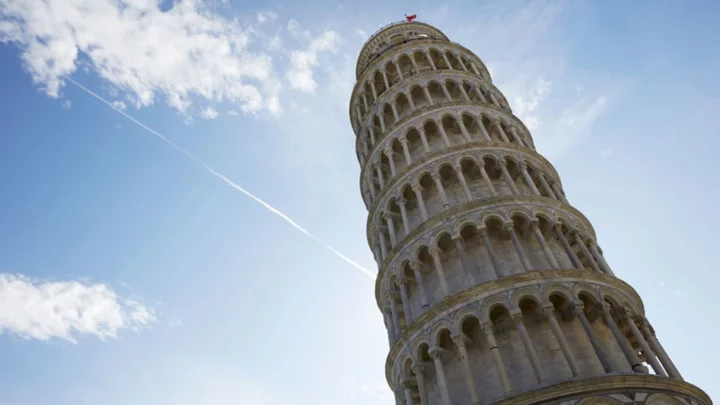
14 Fascinating Facts About the Leaning Tower of Pisa
Here's everything you need to know about Italy's most beloved architectural accident.
2023-08-30 04:57
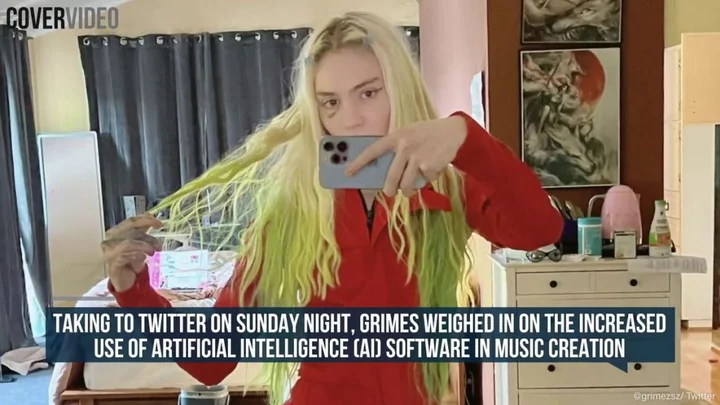
AI in music: The top artists are are for and against the technology
With the rise of AI, we've all seen how powerful this new technology can be particularly when it comes to music. As a result, people have been using AI to perfectly replicate the singing voices of different artists such as Drake, Ariana Grande, Billie Eilish, Taylor Swift and Harry Styles in order to make AI covers of different songs. For example, there is a viral AI cover of Harry Styles singing in a duet with Taylor Swift on her track Style which fans have been going crazy about. While AI can also be used to create deep fakes of celebrities too - where the celeb's face is digitally imposed on someone else's body which is often used to spread misinformation or for malicious intent. But what do artists think about this issue? Here are the celebrities who have spoken out so far on the topic of AI: Drake An AI song called "Heart on My Sleeve" that used Drake's and the Weeknd's voices went viral before being taken down by music streaming services. While Drake himself hasn't commented on all the AI songs that have been created, he did express his disapproval of the practice after the rapper responded to an AI-generated cover of him rapping Ice Spice’s “Munch”, writing: “This is the final straw AI.” Grimes Grimes has expressed enthusiasm towards the new AI-generated songs - and has told her fans they can use her voice to create their own tracks. Taking to Twitter, she shared a New York Times article about the viral AI-generated song using Drake and The Weeknd's voice. She wrote: "I'll split 50 per cent royalties on any successful AI-generated song that uses my voice. Same deal as I would with any artist I collab with. Feel free to use my voice without penalty. I have no label and no legal bindings." "I think it's cool to be fused w a machine and I like the idea of open-sourcing all art and killing copyright," she added. Though, later she did add a clarification on the platform as to what circumstances would cause her to get certain AI songs taken down for copyright - where "rly rly toxic lyrics," are used with her voice. "Ok hate this part but we may do copyright takedowns ONLY for rly rly toxic lyrics w grimes voice: imo you'd rly have to push it for me to wanna take smthn down but I guess plz don't be *the worst*. as in, try not to exit the current Overton window of lyrical content w regards to sex/violence. Like no baby murder songs plz," she wrote. "I think I'm Streisand effecting this now but I don't wanna have to issue a takedown and be a hypocrite later. ***That's the only rule." Rly don't like to do a rule but don't wanna be responsible for a Nazi anthem unless it's somehow in jest a la producers I guess "- wud prefer avoiding political stuff but if it's a small meme with ur friends we prob won't penalize that. Probably just if smthn is viral and anti abortion or smthn like that. Grimes added: "Rly rly don't like adding rules so I apologize but this is the only thing." Most recently, the singer and producer has shared a guide on how to do this, and shared the link in a tweet: "HOW TO MAKE MUSIC FEAT GrimesAI - we can distribute it for you and you can earn royalties from your work." Billie Eilish During an appearance on The Late, Late Show with James Corden back in May this year, Billie Eilish shared her thoughts on AI. "I feel like my approach is not as optimistic, I'm a little bit scared of it," she admitted. "I'm a little scared of what someone could create of me doing something with it." Eilish added: "Scary, scary to me, it just looks so real," as she went on to note how it's "One of the most impressive things I've encountered in my life." The singer's comments come after deepfake porn' of singer Eilish was promoted on people's TikTok in December last year. Sign up to our free Indy100 weekly newsletter Have your say in our news democracy. Click the upvote icon at the top of the page to help raise this article through the indy100 rankings.
2023-08-26 13:25
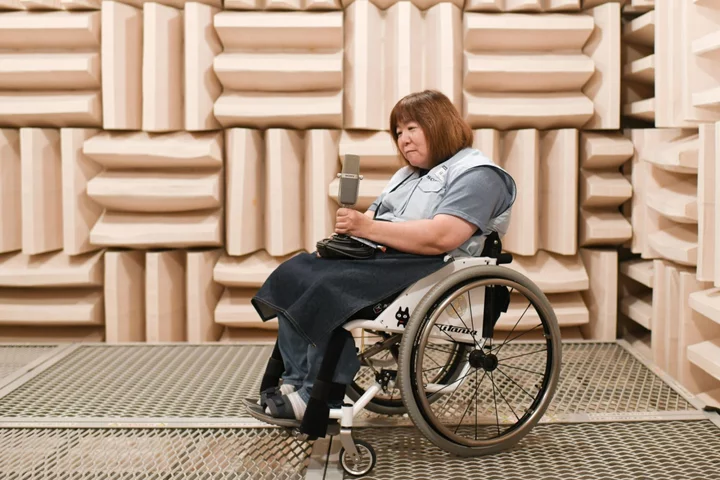
A Tiny Japanese Factory Is Handcrafting $11,000 Mics for Dr. Dre
Eiko Higuchi took a job in an audio factory employing people with disabilities after an accident left her
2023-08-25 06:49

Republican Debate Draws 12.8 Million Viewers on Fox Channels
About 12.8 million people watched the first Republican presidential primary debate of the 2024 election season, an event
2023-08-25 05:45

FCC Invites Comment on Request to Deny Fox TV License Renewal
Regulators invited public comment on whether the US broadcast license for Fox Corp.’s TV station in Philadelphia should
2023-08-24 04:16

Amazon, Warner Bros. Compete for New Package of Nascar TV Rights
Amazon.com Inc. and Warner Bros. Discovery Inc. are competing to broadcast a new package of Nascar races, with
2023-08-24 00:17
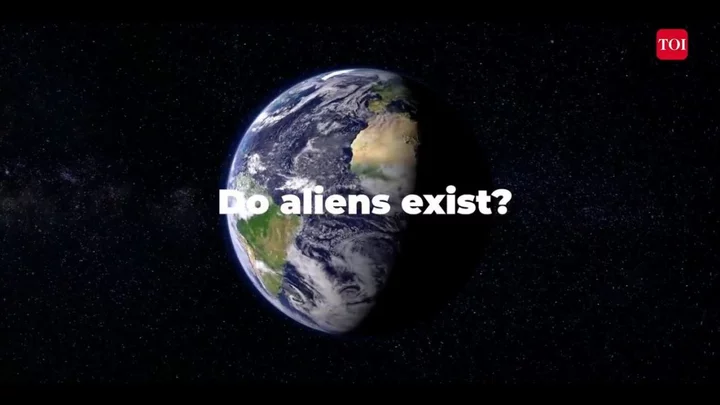
Astronomers are expecting a message from aliens today that is 40 years in the making
Astronomers are hoping to receive a message from aliens after a 40-year wait for a reply comes to an end. On 15 August 1983, a pair of hopeful astronomers at Stanford University beamed a message into space via an antenna. They believe that 22 August 2023 is the earliest time they can expect to receive a reply. The experiment was the brain-child of professors Masaki Morimoto and Hisashi Hirabayashi, who, around 40 years ago, beamed 13 drawings in radio waves to a star named Altair, approximately 16.7 light-years away from Earth. The 13 drawings sent into space by Morimoto and Hirabayashi were designed to tell the story of human evolution and how human beings came to exist on Earth. Drawings depicted how humans evolved from microscopic creatures that eventually moved from water onto land. It also explained our solar system and what DNA is. It was the hope that if there was any intelligent life on planets close to the star, they would interpret the messages and hopefully send a reply. In anticipation of a reply, a team at The University of Hyogo in Japan will monitor for a reply using the Japan Aerospace Exploration Agency’s (JAXA) antenna. Led by Shinya Narusawa, the team will listen for around an hour for signs of unusual radio activity or signals that could suggest a reply. Narusawa explained: “A large number of exoplanets have been detected since the 1990s,” adding, “Altair may have a planet whose environment can sustain life.” Unfortunately, if a reply is received, it will be too late for Morimoto, one of the professors responsible for the original project, after he died in 2010. Dr Hirabayashi, the other pioneer, is currently a professor emeritus at JAXA. It is yet to be seen whether he will see his 40-year experiment gets the conclusion he was hoping for. Sign up to our free Indy100 weekly newsletter Have your say in our news democracy. Click the upvote icon at the top of the page to help raise this article through the indy100 rankings.
2023-08-22 17:24

Thanks to a Privacy Breach, Facebook May Owe You Some Money—But You Have Just a Week Left to Collect
There's a week left to file a claim for your (small) share of a $725 million settlement.
2023-08-19 03:47

10 Useful Gadgets That Will Help You Turn Your Old Car Into a Smart Car
Want to upgrade your ride without dropping a small fortune on a new one? With these affordable smart car accessories, you can.
2023-08-19 00:24

Apple Should End Deal Drought By Buying ESPN, Analyst Says
Apple Inc. is famous for avoiding high-profile acquisitions, but it should make an exception for Walt Disney Co.’s
2023-08-17 21:25
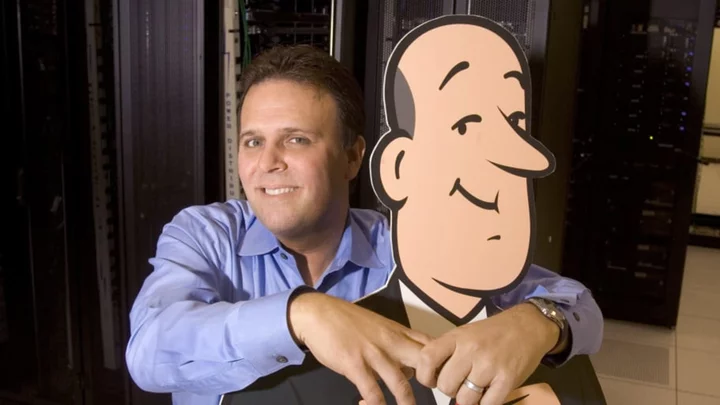
Why Everyone Stopped Asking Jeeves
Ask Jeeves became a casualty of the search engine wars of the early 2000s. Eventually, their mascot was escorted right out the door.
2023-08-17 12:23
